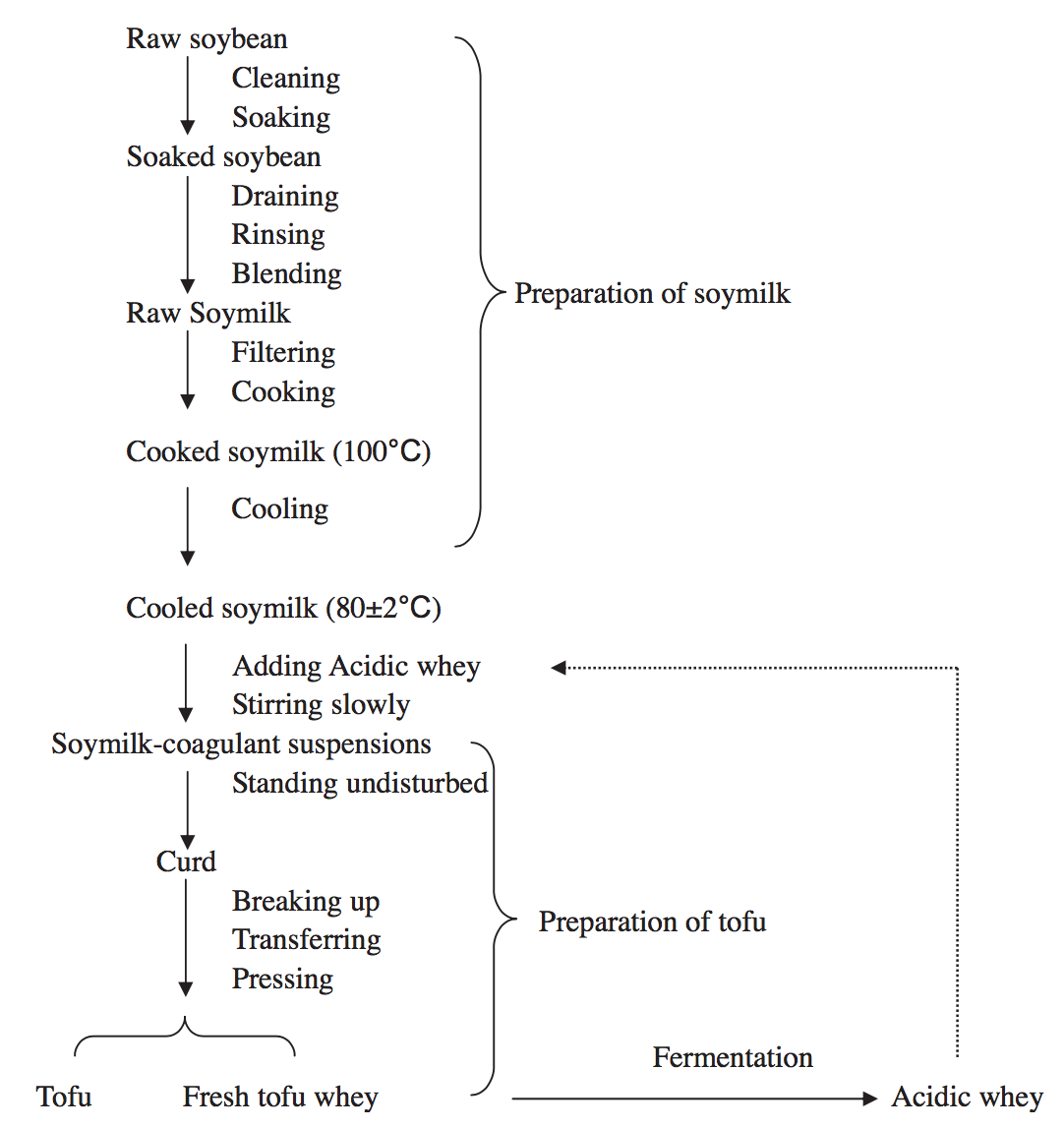Fresh tofu whey is one of the byproducts of producing tofu from whole soy beans, the other main byproduct being okara (soybean pulp). For people who have never made tofu, here's a diagram showing that whey is the last byproduct in the process.

It's hard to find a quantitative answer about what exactly is contained in the whey, but qualitatively tofu whey is known to contain:
- Protein
- Carbohydrates including soluble sugars
- Oils
- B vitamins
- Calcium (when calcium sulfate is used as a coagulant)
- Isoflavones
- Prebiotics
It may be possible to estimate the nutritional content of whey by comparing whole soybeans with the main process product (tofu) and first byproduct( okara). One blogger quantifies the process inputs and outputs of homemade tofu:
From that, you can make 300-400g of organic tofu, about 1.5 cups of okara, and 700g of whey.
http://www.diabetes.piggledee.com/tag/tofu/
Starting with 1 cup (186 grams) of raw soy beans we have:
- 56 grams carbohydrate
- 17 grams fibre
- 14 grams sugar
- 37 grams fat
- 68 grams protein
In the medium-firm tofu product (350 grams) we have (estimate):
- 4 grams carbohydrate
- 0 grams fibre
- 0 grams sugar
- 20 grams fat
- 33 grams protein
In the okara byproduct (1.5 cups / 183 grams) we have:
- 21 grams carbohydrate
- 18 grams fibre
- ? grams sugar
- 5 grams fat
- 9 grams protein
Therefore the estimated nutritional content of 700 g fresh tofu whey is:
- 31 grams carbohydrate
- 0 grams fibre
- 14 grams sugar
- 12 grams fat
- 26 grams protein
Tofu whey is difficult to process, has a very short shelf life (measured in hours not days) and is considered an environmental pollutant. Some people are attempting to make it into a saleable product, such as fermenting it into sachi, an alcoholic drink.
Consuming tofu whey directly is likely to produce substantial flatulence in humans.
1966 Soyfoods Flatulence . Steggerda, Richards, and Rackis (1966), in the first study of flatulence factors in soyfoods, showed that the gas-producing factors reside mainly in the oligosaccharides stachyose and raffinose, low molecular weight, water-soluble carbohydrates. Compared with a soy-free basal diet which produced an average of 13 cc of gas, they found that soy protein isolate produced 2 cc, okara 13 cc, whole soy flour 30 cc, soy protein concentrate 36 cc, defatted soy flour 71 cc, and tofu whey solids 300 cc http://www.soyinfocenter.com/HSS/nutrition3.php
